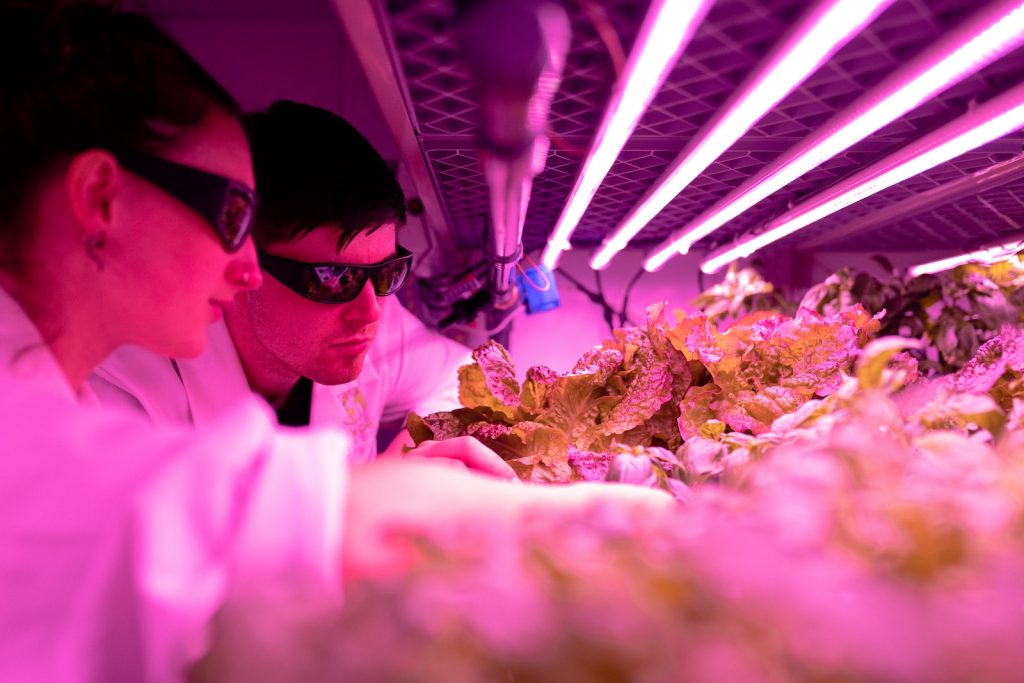ecropz
December 3, 2023
“Agriculture Innovation: 10 Tech Trends to Watch in 2023” by MassChallenge

In the dynamic world of agriculture, technological advancements continue to revolutionize the way we cultivate and harvest. As we step into 2023, a myriad of innovative technologies are poised to redefine the landscape of farming. From precision farming to sustainable practices, let’s delve into the 10 agriculture tech trends that are set to make waves this year.
Precision Agriculture and AI Integration: Precision agriculture takes a giant leap forward with the integration of Artificial Intelligence (AI). AI-driven algorithms analyze data from sensors, satellites, and drones to optimize crop yield, reduce resource wastage, and enhance decision-making processes.
Robotics in Farming: Robots are increasingly becoming an integral part of modern farming. From autonomous tractors to robotic harvesters, these machines are designed to perform repetitive tasks with precision, reducing labor costs and increasing efficiency.
Blockchain for Supply Chain Transparency: Blockchain technology is bringing transparency to the agricultural supply chain. By creating an immutable and decentralized ledger, it enables farmers, distributors, and consumers to trace the journey of produce from farm to table, ensuring authenticity and quality.
Agri Drones for Crop Monitoring: Drones equipped with advanced imaging technology are transforming crop monitoring. These aerial devices provide real-time data on crop health, allowing farmers to identify potential issues such as pest infestations or nutrient deficiencies early on.
Vertical Farming for Sustainable Production: As urbanization continues, vertical farming emerges as a solution to limited arable land. With controlled environments and efficient resource use, vertical farms enable year-round production, minimizing the ecological footprint of agriculture.
Smart Irrigation Systems: Water scarcity is a pressing issue, and smart irrigation systems address this challenge by optimizing water usage. IoT-enabled sensors measure soil moisture levels, weather conditions, and crop water requirements, ensuring precise irrigation and conserving water.
Gene Editing for Crop Improvement: Gene editing technologies like CRISPR-Cas9 are revolutionizing crop breeding. By modifying specific genes, scientists can enhance crop resilience, nutritional content, and resistance to diseases, paving the way for more sustainable and nutritious food production.
5G Connectivity in Rural Areas: The advent of 5G technology is bridging the connectivity gap in rural farming communities. High-speed internet facilitates the deployment of smart farming technologies, empowering farmers with real-time data access and remote monitoring capabilities.
AgTech Startups Driving Innovation: A surge in AgTech startups is injecting fresh ideas into the agricultural landscape. These startups are developing innovative solutions, ranging from farm management platforms to novel equipment, fostering a culture of continuous improvement and adaptation.
Climate-Resilient Agriculture: Climate change poses a significant threat to agriculture, but technology is offering solutions. Climate-resilient crops and technologies that mitigate the impact of extreme weather events are gaining traction, helping farmers adapt to the changing climate.
“In the grand tapestry of agriculture’s evolution, 2023 weaves a chapter of technology and promise. Rachel Carson’s words resonate: ‘The more clearly we can focus our attention on the wonders and realities of the universe about us, the less taste we shall have for destruction.’ Let innovation guide our hands, nurturing the Earth’s wonders for generations to come.”

